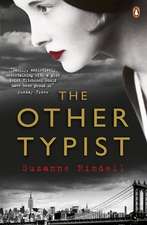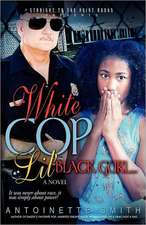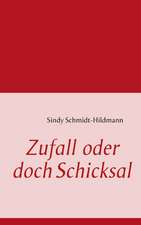Anatomy of a Disappearance
Autor Hisham Mataren Limba Engleză Paperback – 29 feb 2012
| Toate formatele și edițiile | Preț | Express |
|---|---|---|
| Paperback (2) | 52.51 lei 26-32 zile | +18.00 lei 7-13 zile |
| Penguin Books – 29 feb 2012 | 52.51 lei 26-32 zile | +18.00 lei 7-13 zile |
| Dial Press – 27 aug 2012 | 109.11 lei 3-5 săpt. |
Preț: 52.51 lei
Preț vechi: 63.06 lei
-17% Nou
Puncte Express: 79
Preț estimativ în valută:
10.05€ • 10.49$ • 8.32£
10.05€ • 10.49$ • 8.32£
Carte disponibilă
Livrare economică 20-26 martie
Livrare express 01-07 martie pentru 27.99 lei
Preluare comenzi: 021 569.72.76
Specificații
ISBN-13: 9780141027500
ISBN-10: 0141027509
Pagini: 256
Dimensiuni: 129 x 198 x 16 mm
Greutate: 0.18 kg
Editura: Penguin Books
Colecția Penguin
Locul publicării:London, United Kingdom
ISBN-10: 0141027509
Pagini: 256
Dimensiuni: 129 x 198 x 16 mm
Greutate: 0.18 kg
Editura: Penguin Books
Colecția Penguin
Locul publicării:London, United Kingdom
Notă biografică
Extras
Chapter 1
There are times when my father’s absence is as heavy as a child sitting on my chest. Other times I can barely recall the exact features of his face and must bring out the photographs I keep in an old envelope in the drawer of my bedside table. There has not been a day since his sudden and mysterious vanishing that I have not been searching for him, looking in the most unlikely places. Everything and everyone, existence itself, has become an evocation, a possibility for resemblance. Perhaps this is what is meant by that brief and now almost archaic word: elegy.
I do not see him in the mirror but feel him adjusting, as if he were twisting within a shirt that nearly fits. My father has always been intimately mysterious even when he was present. I can almost imagine how it might have been coming to him as an equal, as a friend, but not quite.
×××
My father disappeared in 1972, at the beginning of my school Christmas holiday, when I was fourteen. Mona and I were staying at the Montreux Palace, taking breakfast— I with my large glass of bright orange juice, and she with her steaming black tea—on the terrace overlooking the steel-blue surface of Lake Geneva, at the other end of which, beyond the hills and the bending waters, lay the now vacant city of Geneva. I was watching the silent paragliders hover above the still lake, and she was paging through La Tribune de Genève, when suddenly her hand rose to her mouth and trembled.
A few minutes later we were aboard a train, hardly speaking, passing the newspaper back and forth.
We collected from the police station the few belongings that were left on the bedside table. When I unsealed the small plastic bag, along with the tobacco and the lighter flint, I smelled him. That same watch is now wrapped round my wrist, and even today, after all these years, when I press the underside of the leather strap against my nostrils I can detect a whiff of him.
×××
I wonder now how different my story would have been were Mona’s hands unbeautiful, her fingertips coarse.
I still, all of these years later, hear the same childish persistence, “I saw her first,” which bounced like a devil on my tongue whenever I caught one of Father’s claiming gestures: his fingers sinking into her hair, his hand landing on her skirted thigh with the absentmindedness of a man touching his earlobe in mid-sentence. He had taken to the Western habit of holding hands, kissing, embracing in public. But he could not fool me; like a bad actor, he seemed unsure of his steps. Whenever he would catch me watching him, he would look away and I swear I could see color in his cheeks. A dark tenderness rises in me now as I think how hard he had tried; how I yearn still for an easy sympathy with my father. Our relationship lacked what I have always believed possible, given time and perhaps after I had become a man, after he had seen me become a father: a kind of emotional eloquence and ease. But now the distances that had then governed our interactions and cut a quiet gap between us continue to shape him in my thoughts.
From the Hardcover edition.
There are times when my father’s absence is as heavy as a child sitting on my chest. Other times I can barely recall the exact features of his face and must bring out the photographs I keep in an old envelope in the drawer of my bedside table. There has not been a day since his sudden and mysterious vanishing that I have not been searching for him, looking in the most unlikely places. Everything and everyone, existence itself, has become an evocation, a possibility for resemblance. Perhaps this is what is meant by that brief and now almost archaic word: elegy.
I do not see him in the mirror but feel him adjusting, as if he were twisting within a shirt that nearly fits. My father has always been intimately mysterious even when he was present. I can almost imagine how it might have been coming to him as an equal, as a friend, but not quite.
×××
My father disappeared in 1972, at the beginning of my school Christmas holiday, when I was fourteen. Mona and I were staying at the Montreux Palace, taking breakfast— I with my large glass of bright orange juice, and she with her steaming black tea—on the terrace overlooking the steel-blue surface of Lake Geneva, at the other end of which, beyond the hills and the bending waters, lay the now vacant city of Geneva. I was watching the silent paragliders hover above the still lake, and she was paging through La Tribune de Genève, when suddenly her hand rose to her mouth and trembled.
A few minutes later we were aboard a train, hardly speaking, passing the newspaper back and forth.
We collected from the police station the few belongings that were left on the bedside table. When I unsealed the small plastic bag, along with the tobacco and the lighter flint, I smelled him. That same watch is now wrapped round my wrist, and even today, after all these years, when I press the underside of the leather strap against my nostrils I can detect a whiff of him.
×××
I wonder now how different my story would have been were Mona’s hands unbeautiful, her fingertips coarse.
I still, all of these years later, hear the same childish persistence, “I saw her first,” which bounced like a devil on my tongue whenever I caught one of Father’s claiming gestures: his fingers sinking into her hair, his hand landing on her skirted thigh with the absentmindedness of a man touching his earlobe in mid-sentence. He had taken to the Western habit of holding hands, kissing, embracing in public. But he could not fool me; like a bad actor, he seemed unsure of his steps. Whenever he would catch me watching him, he would look away and I swear I could see color in his cheeks. A dark tenderness rises in me now as I think how hard he had tried; how I yearn still for an easy sympathy with my father. Our relationship lacked what I have always believed possible, given time and perhaps after I had become a man, after he had seen me become a father: a kind of emotional eloquence and ease. But now the distances that had then governed our interactions and cut a quiet gap between us continue to shape him in my thoughts.
From the Hardcover edition.
Recenzii
Praise for Anatomy of a Disappearance
NAMED ONE OF THE BEST BOOKS OF THE YEAR BY:
Chicago Tribune • The Daily Beast • The Independent • The Guardian • The Telegraph • The Toronto Sun • Irish Times
“For Western readers, what often seemed lacking [in the coverage of the Arab Spring] was an authentic interpreter and witness, someone who could speak across cultures and make us feel the abundant miseries that fueled the revolt. No one plays this role, in my view, as powerfully, as Hisham Matar…Matar writes in English, in extraordinarily powerful and densely evocative prose: he seems uniquely poised to play the role of literary ambassador between two worlds…”--The New York Times
“Mesmerizing. . . . The recent events that have lent topicality to this elegiac novel might easily have swamped a lesser work. Its strength rests in Matar's decision to focus on emotional rather than material details, proving that in art, at least, the personal can trump the political.”—Houston Chronicle
“A haunting novel, exquisitely written and psychologically rich.”—Washington Post
“[A] potent new novel . . . which moves among eerily silent interiors in London, Cairo, and Geneva to evoke the emotional vacuum that follows [a] father’s abduction.”--Vogue
“Outstanding . . . with its stylistic echoes of Nabokov.”—The Irish Times
“Elegiac . . . [Hisham Matar] writes of a son’s longing for his lost father with heartbreaking acuity.”—Newsday
“A son without closure writes sparingly and brilliantly about what it is to suffer loss without end.”—Kirkus Reviews
“Eloquent . . . one of the most moving works based on a boy’s view of the world.”
—Newsweek
“A searing vision of familial rupture and disintegration. . . . At once tough and tender, shaped by the sorrows of memory, Nuri's story is searching, acquiring power in its graceful acceptance of the impossibility of certainty. . . . An elegant and smart evocation of the complexities of filial love.”—«Publishers Weekly, starred review
“Two things stood out as I read Anatomy of a Disappearance. First, there was the quiet power of the language, and the author’s control of it. Second, there was Hisham Matar’s ability to tell a story that from the first sentence seems inevitable, yet is full of surprises. I was moved and very impressed.”—Roddy Doyle
“Sculpted in a prose of clutter-free, classical precision . . . a pure demonstration of the strange alchemy of fiction.”—The Independent (U.K.)
“A tenderly written novel with Shakespearean themes, it can be read as a deeply personal account of the losses that tyranny and exile produce.”—The Times Literary Supplement
“Haunting in every sense . . . An absorbing novel that finds its eloquence in what is left unsaid.”—The Sunday Times (London)
“Submerged grief gives this fine novel the mythic inexorability of Greek tragedy.”—The Economist
“A fable of loss, and an often troubling meditation on fathers and sons . . . Hisham Matar is writing from the heart.”—The Guardian (London)
From the Hardcover edition.
NAMED ONE OF THE BEST BOOKS OF THE YEAR BY:
Chicago Tribune • The Daily Beast • The Independent • The Guardian • The Telegraph • The Toronto Sun • Irish Times
“For Western readers, what often seemed lacking [in the coverage of the Arab Spring] was an authentic interpreter and witness, someone who could speak across cultures and make us feel the abundant miseries that fueled the revolt. No one plays this role, in my view, as powerfully, as Hisham Matar…Matar writes in English, in extraordinarily powerful and densely evocative prose: he seems uniquely poised to play the role of literary ambassador between two worlds…”--The New York Times
“Mesmerizing. . . . The recent events that have lent topicality to this elegiac novel might easily have swamped a lesser work. Its strength rests in Matar's decision to focus on emotional rather than material details, proving that in art, at least, the personal can trump the political.”—Houston Chronicle
“A haunting novel, exquisitely written and psychologically rich.”—Washington Post
“[A] potent new novel . . . which moves among eerily silent interiors in London, Cairo, and Geneva to evoke the emotional vacuum that follows [a] father’s abduction.”--Vogue
“Outstanding . . . with its stylistic echoes of Nabokov.”—The Irish Times
“Elegiac . . . [Hisham Matar] writes of a son’s longing for his lost father with heartbreaking acuity.”—Newsday
“A son without closure writes sparingly and brilliantly about what it is to suffer loss without end.”—Kirkus Reviews
“Eloquent . . . one of the most moving works based on a boy’s view of the world.”
—Newsweek
“A searing vision of familial rupture and disintegration. . . . At once tough and tender, shaped by the sorrows of memory, Nuri's story is searching, acquiring power in its graceful acceptance of the impossibility of certainty. . . . An elegant and smart evocation of the complexities of filial love.”—«Publishers Weekly, starred review
“Two things stood out as I read Anatomy of a Disappearance. First, there was the quiet power of the language, and the author’s control of it. Second, there was Hisham Matar’s ability to tell a story that from the first sentence seems inevitable, yet is full of surprises. I was moved and very impressed.”—Roddy Doyle
“Sculpted in a prose of clutter-free, classical precision . . . a pure demonstration of the strange alchemy of fiction.”—The Independent (U.K.)
“A tenderly written novel with Shakespearean themes, it can be read as a deeply personal account of the losses that tyranny and exile produce.”—The Times Literary Supplement
“Haunting in every sense . . . An absorbing novel that finds its eloquence in what is left unsaid.”—The Sunday Times (London)
“Submerged grief gives this fine novel the mythic inexorability of Greek tragedy.”—The Economist
“A fable of loss, and an often troubling meditation on fathers and sons . . . Hisham Matar is writing from the heart.”—The Guardian (London)
From the Hardcover edition.



















